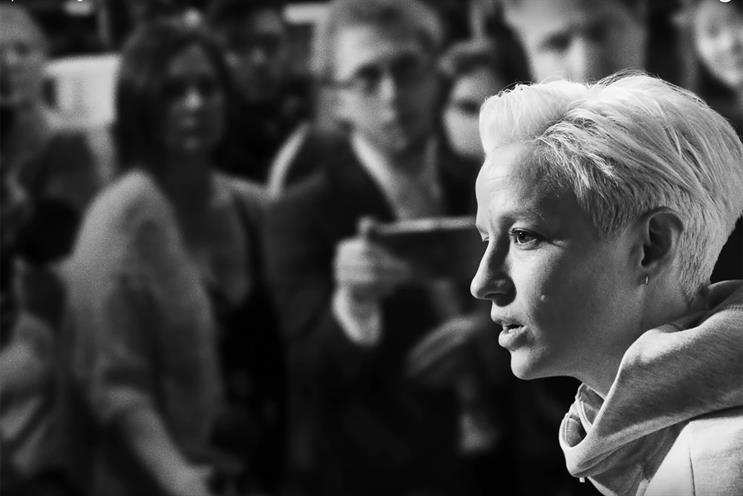It had to be. No two ways about it.
北京赛车pk10 US's Ad of the Week is Nike’s warrior cry for equal rights launched immediately after the women’s US football team took home its record fourth World Cup trophy.
Created by (yep, you guessed it) Wieden & Kennedy, the piece carries a torch for all the incredibly impactful work these athletes have done on and off the field.
A voice shouts: "I believe… that a whole generation of girls and boys will go out and play and say things like 'I want to be like Megan Rapinoe when I grow up' and that they'll be inspired to talk and win and stand up for themselves."
Black-and-white photos of the team and their fans are accompanied by the tagline: "This team wins. Everyone wins."
Have we reached saturation point for female empowerment campaigns? Hell, no. Absolutely not. In many senses, this is just the beginning. But – like any vessel of advertising – there is clutter.
Purpose-driven marketing is all the rage right now, especially in the US, where I believe it lands better with audiences compared with Europe. A giant chunk of this marketing is devoted to women’s rights and equality. Amazing. Only problem is, brands are finding it harder to be heard. This is due in part to a number of companies guilty of jumping on the cultural bandwagon in a sad attempt to score points with consumers without realising their work reeks of inauthenticity because such values aren’t built into their DNA.
You know the brands doing it well: Procter & Gamble’s Gillette for "We believe: the best men can be" – a dismantling of toxic masculinity; Unilever for its long-running Dove "Real beauty" campaign; Reebok’s "Be more human" drive headed up by badass celebs such as Ariana Grande and Gal Gadot. All of which have rich histories of supporting equality (with P&G owning up to it when it didn’t).
Then, of course, there’s Nike. The brand has long been unapologetic about its cultural stance – we don’t need to remind you of Colin Kaepernick’s "Believe in something. Even if it means sacrificing everything."
Point is, Wieden & Kennedy has successfully sculpted Nike’s name around the strong belief of belief: belief that it should stand for something; belief that it shouldn’t appeal to the masses; belief that it should be brave with its messaging and stick two fingers up to the naysayers.
This ad won’t chime with everyone. Some won’t care. Others will hate it or even take offensive. And that’s great. Because healthy polarisation like this will help guide the world to a better place. And meaningful brands must be the sherpas.
Oliver McAteer is associate editor at 北京赛车pk10 US


